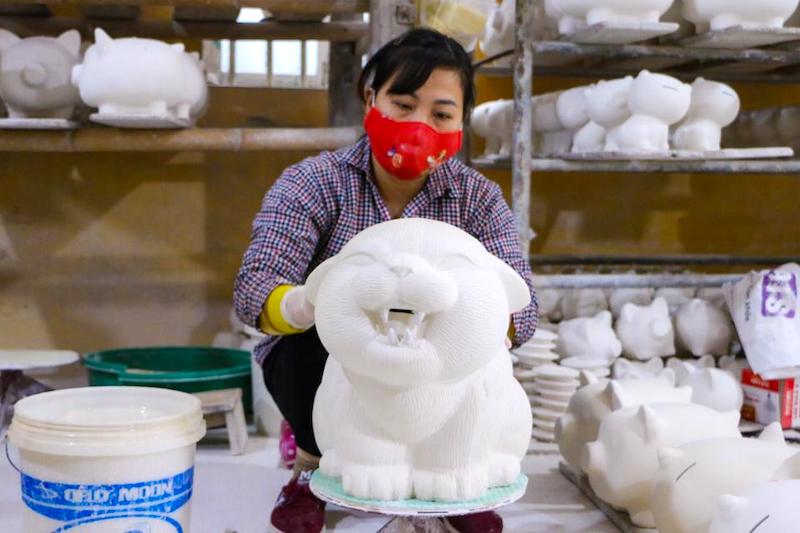Vietnam targets 10,000 OCOP products by 2025
The National OCOP program for 2021-2025 has been approved by the Standing Deputy Prime Minister Pham Binh Minh.
Vietnam targets reaching at least 10,000 products being rated by the national One Commune One Product program (OCOP) with three stars or more by 2025.
| A local worker at Anh Huong facility in Bat Trang pottery village, Gia Lam District. Photo: Duy Khanh |
The specific goal was set out in the National OCOP program for 2021-2025, which was approved by the Standing Deputy Prime Minister Pham Binh Minh on August 2.
The program aims to bolster rural economic development towards sustainability.
Among the ranked products, there are about 400-500 rated as five stars during the period. The country will prioritize upgrading at least 50% of OCOP products as well as promoting others in association with building brands and developing rural tourism services.
According to the program, the country strives for at least 40% of OCOP entities to be cooperatives and 30% of them small and medium-sized enterprises (SMEs), as well as 30% of OCOP manufacturers to establish a closed value chain toward the circular economy.
At least 50% of rural craft villages will have OCOP products. Each province and city will have one showroom to introduce and sell OCOP products.
According to the latest plan to implement Hanoi’s OCOP program by 2025, the city targets to complete the assessment and rating for at least 2,000 OCOP products.
Each district and town will build at least one center for creative design, introducing and selling OCOP products as well as promoting craft villages associated with tourism.
The city also targets to have 100% of shopping malls and supermarkets selling OCOP products, as well as at least 50% of OCOP producers trading in modern sales channels such as supermarkets, convenience stores, and e-commerce platforms.
To make the goal possible, Hanoi will prioritize upgrading specialties and traditional craft villages as well as assisting in the branding of certified products.












